The workshop presented by THINKING-BIG was part of the programme: “Two psychologists enter in a shop and ask for post-its”. For one hour we talked about concepts from PP that are connected to Service Design on several levels:
- For the Designers themselves, amplifying their perspectives, visions and values when formulating new proposals.
- For the Services, seeking to focus on constructive and meaningful development.
- For the Clients (companies, employees, citizens), making them aware of these values that are leaning to a more conscious life and focused on what is best.
The connection between Positive Psychology and Service Design was already quite intuitive for the participants: the focus on what makes people and societies thrive and the strong importance of empathy in each process are common themes.
To these concepts some other constructs studied by PP were added, that might be relevant for SD:
- Optimism – what is its importance in creating something new and better.
- Flow – how the demand for it leads the SD’s on their processes and results.
- Interconnectedness – the way this is, in fact, the motor and goal of so many processes in SD.
- Subjective Well-being – common quest for both subjects (and connected to the theme of the Conference itself: Quality of life).
- Hope – the factor that promotes and to be promoted on the SD processes.
Moreover, we also talked about personal strengths - the importance of acknowledging and developing them - and about Gratitude as a factor to be developed for a more conscious and present growth, in a clear connection with Mindfulness.
The workshop PowerPoint presentation with all the contents can be found here:
The final feedbacks of the participants show a strong and useful relationship between both subjects. There was a lot of post-its with extraordinarily positive comments about the group dynamics in the workshop. But we also had post-its about the importance of acknowledging the personal and clients’ strengths, or about the fundamental role of gratitude applied on a better Service Design, as follows:
- “It will be useful for me to better spot and design on values that really matter to people and can make the difference. It will improve my work life with colleagues. Positive Psychology is a new field to explore. Thanks!”
- “Strengthen the teams we work in and to see each other’s strengths. Useful to see more solutions and possibilities. Create services and more solutions we thought was possible. Positivity leads to appreciation of others, which leads to empathy and understanding, which leads to better service design.”
In short, we see Positive Psychology and Service Design with strong relations and extremely useful for the process building a stronger society, able to reach its best.
"Edite Amorim invited me to sit in on her workshop exploring the connection between positive psychology and service design. I have to admit that I wasn’t familiar with this branch of psychology but Edite quickly dispelled any misconceptions about the practice and instead framed it as the study of what makes people thrive.
She and her researcher Rita Pureza facilitated an activity based on the theme of “interconnectedness,” one of the basic concepts of positive psychology. She challenged the group to identify strengths in their fellow attendees. Each participant received a set of post-it notes and guidelines to circulate throughout the room, interacting with others and jotting down first impressions which were then affixed to their target’s back anonymously. The observations didn’t need to be strictly accurate as long as they were positive and made in good faith. No criticism allowed.
The ensuing activity reminded me of team-building exercises I encountered during my time as an RA in college. The attendees mingled easily, laughing and making new connections.
According to Edite the exercise was about acknowledging others, paying attention to what’s good and filling each other’s “positive bucket.” This served as a point of departure for attendees to reflect on things they were grateful for in life and to use that insight to identify the potential for new services incorporating those values.
This workshop was the only time I observed any technical difficulties during the conference. The presentation system was offline for most of the workshop and although the conference staff eventually rigged a stop gap measure it meant that the projector was unavailable for most of the presentation. This led to Edite valiantly describing the contents of her slides for the audience to imagine. It worked surprisingly well and to my mind the graceful recovery engaged the audience more than if the slides had worked in the first place.
Edite’s workshop was concerned with exploring the intersection between positive psychology and service design. I can definitely see the overlap. Some of her photographs resembled traditional design research activities such as card sorting or affinity mapping. My impression is that, for designers, the differences would lie with the form-giving activities which follow the initial research and analysis."
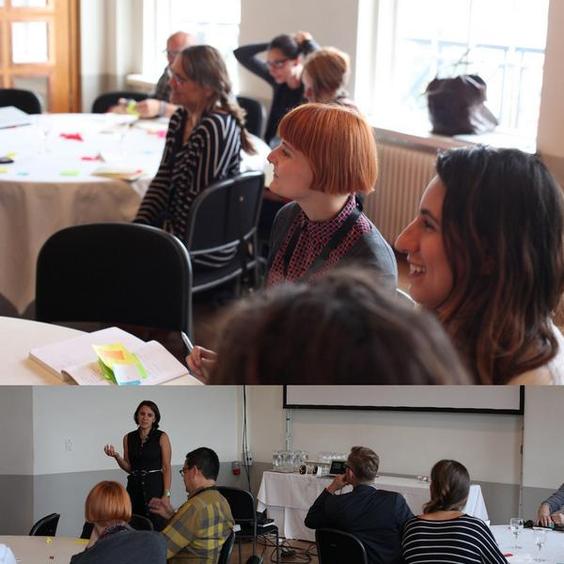
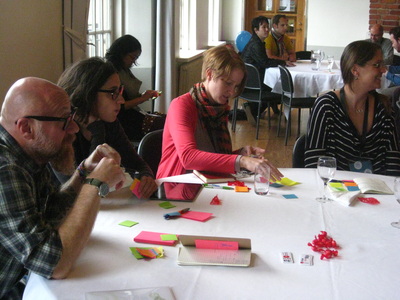
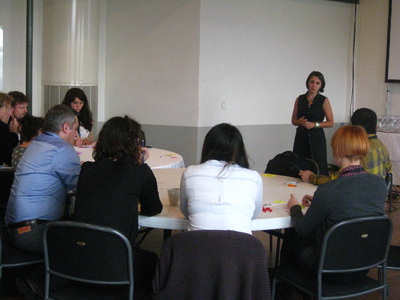
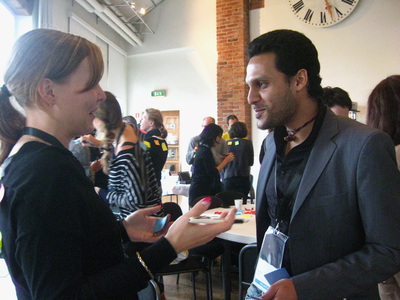
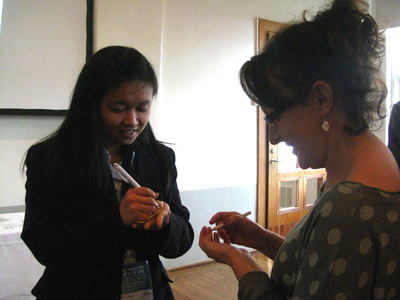
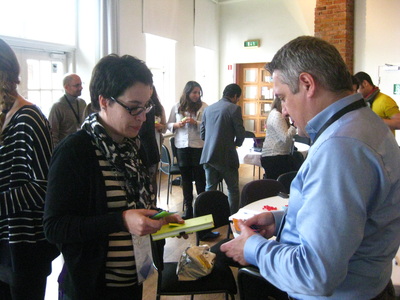
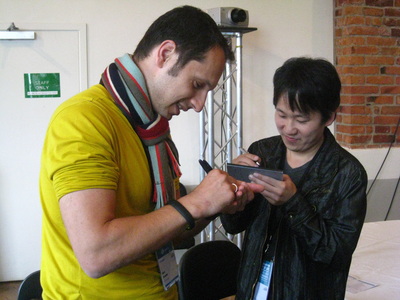
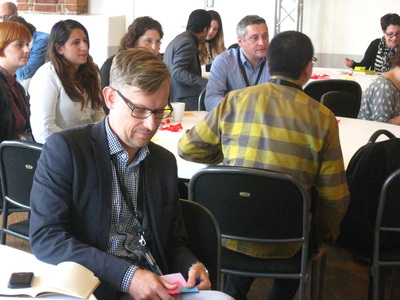
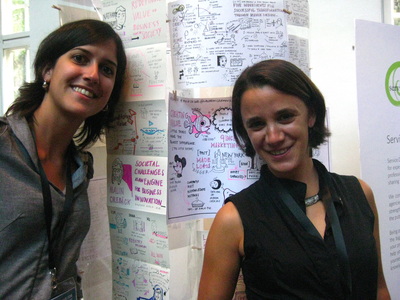
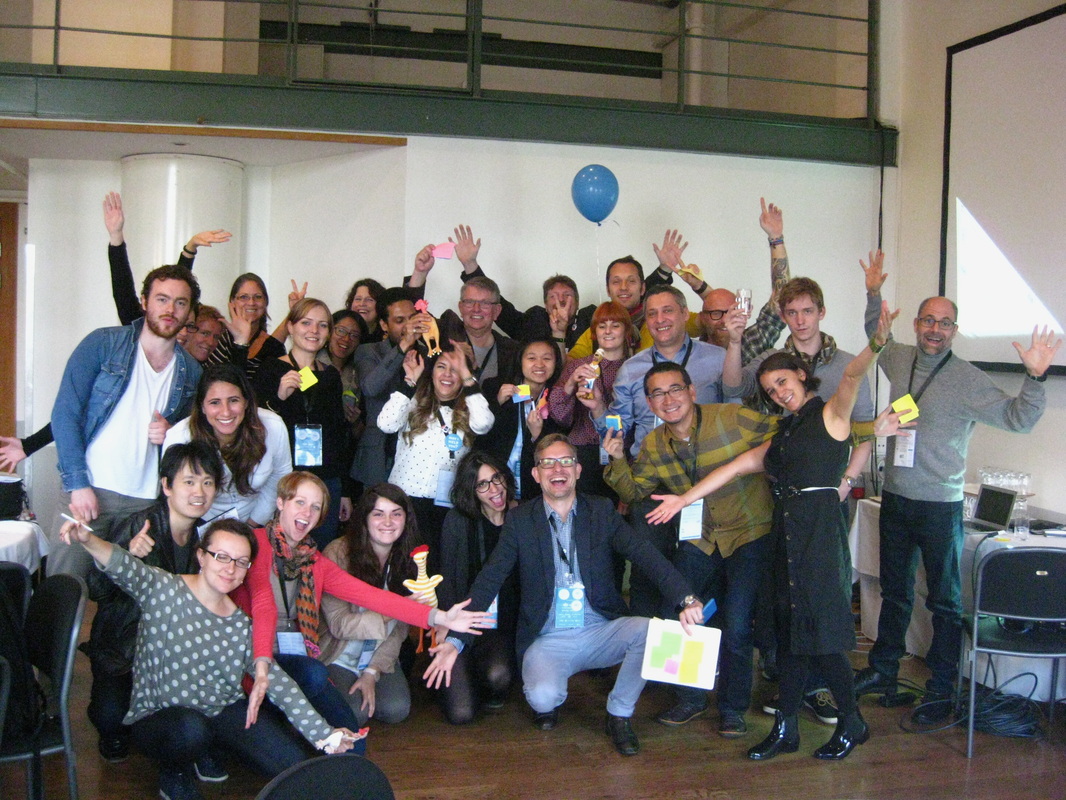

 RSS Feed
RSS Feed